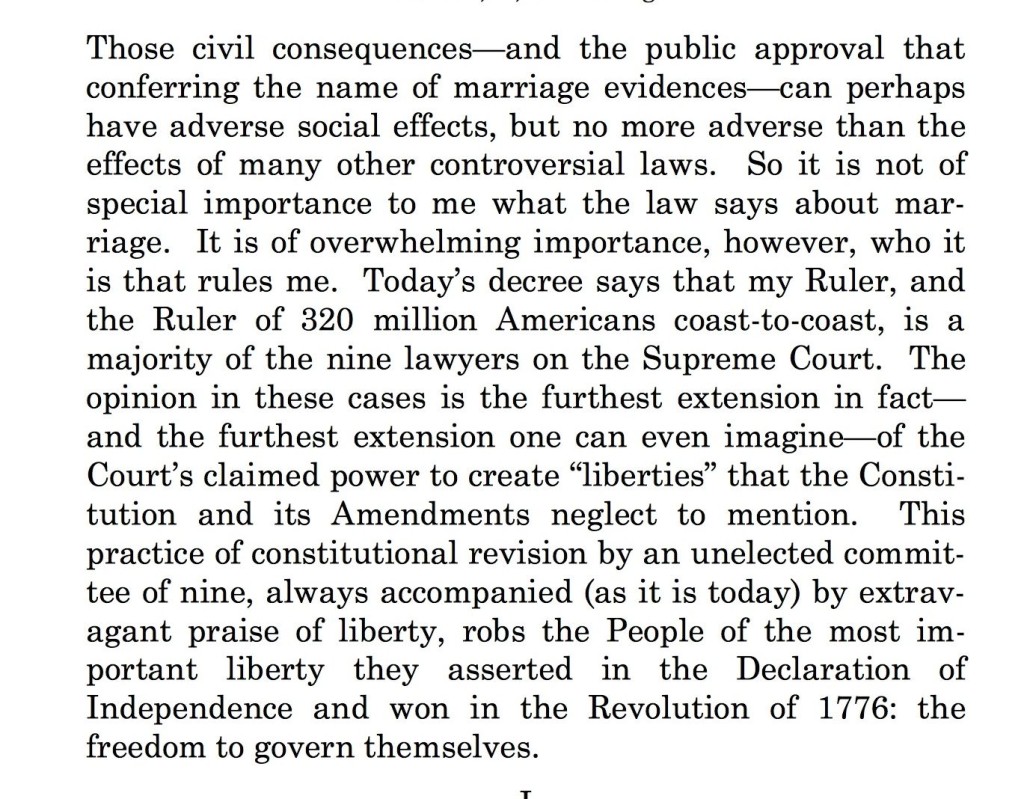They found ‘marriage’ in the Constitution.

“Finally, this Court’s cases and the Nation’s traditions make clear that marriage is a keystone of the Nation’s social order. ” Duh. Then he ‘found’ it in the 14 Amendment.
Scalia dissented,writing,“But the Court ends this debate, in an opinion lacking even a thin veneer of law.”
“So it is not of special importance to me what the law says about mar- riage. It is of overwhelming importance, however, who it is that rules me. Today’s decree says that my Ruler, and the Ruler of 320 million Americans coast-to-coast, is a majority of the nine lawyers on the Supreme Court. The opinion in these cases is the furthest extension in fact— and the furthest extension one can even imagine—of the Court’s claimed power to create “liberties” that the Consti- tution and its Amendments neglect to mention. This practice of constitutional revision by an unelected commit- tee of nine, always accompanied (as it is today) by extrav- agant praise of liberty, robs the People of the most im- portant liberty they asserted in the Declaration of Independence and won in the Revolution of 1776: the freedom to govern themselves.”
On the issue of 14th Amendment coverage, Scalia continued:
“When the Fourteenth Amendment was ratified in 1868, every State limited marriage to one man and one woman, and no one doubted the constitutionality of doing so. That resolves these cases. When it comes to determining the meaning of a vague constitutional provision—such as “due process of law” or “equal protection of the laws”—it is unquestionable that the People who ratified that provision did not under- stand it to prohibit a practice that remained both univer- sal and uncontroversial in the years after ratification.12 We have no basis for striking down a practice that is not expressly prohibited by the Fourteenth Amendment’s text, and that bears the endorsement of a long tradition of open, widespread, and unchallenged use dating back to the Amendment’s ratification. Since there is no doubt what- ever that the People never decided to prohibit the limita- tion of marriage to opposite-sex couples, the public debate over same-sex marriage must be allowed to continue.
But the Court ends this debate, in an opinion lacking even a thin veneer of law. Buried beneath the mummeries and straining-to-be-memorable passages of the opinion is a candid and startling assertion: No matter what it was the People ratified, the Fourteenth Amendment protects those rights that the Judiciary, in its “reasoned judgment,” thinks the Fourteenth Amendment ought to protect.13”



